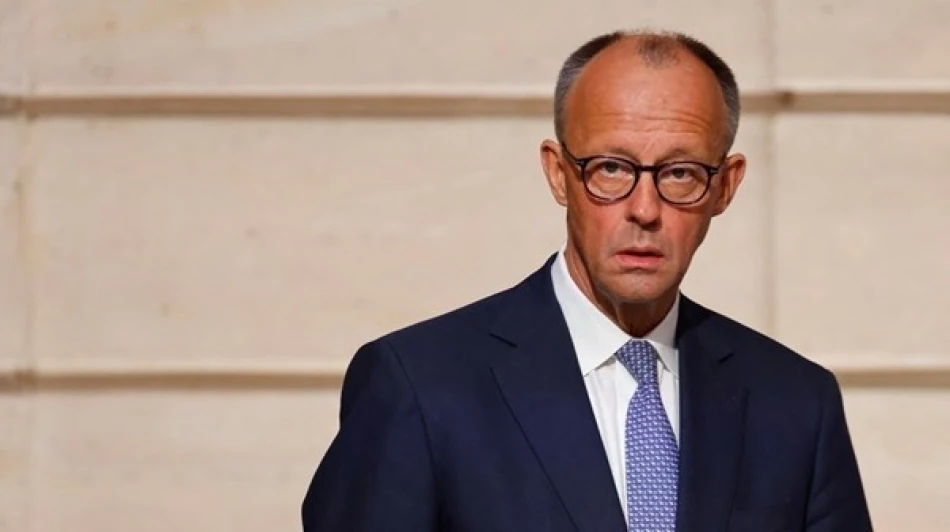
German Chancellor Urges Putin to Seize Ceasefire Opportunity Amid Ukraine Conflict
Merz Sees Putin-Trump Alaska Summit as Critical Moment for Ukraine Ceasefire
German Chancellor Friedrich Merz has identified what he calls a pivotal "opportunity" for Russian President Vladimir Putin to agree to a ceasefire in Ukraine during an anticipated summit with US President Donald Trump in Alaska. The German leader's statement signals growing European expectations that Trump's return to office could reshape the trajectory of the three-year conflict.
Germany Pushes for Three-Way Peace Framework
Merz outlined his vision for ending the war through a structured diplomatic approach, emphasizing that "the goal must be to hold a summit that also includes Ukrainian President Zelensky" where participants could "agree on a ceasefire."
This three-way summit proposal reflects Germany's strategic positioning as Europe's largest economy seeks to balance its NATO commitments with its desire to end a conflict that has severely impacted European energy markets and defense spending. Germany has provided over €28 billion in aid to Ukraine since February 2022, making Merz's push for negotiations both politically and economically motivated.
Trump's "Big Step Toward Peace" Moment
The German Chancellor suggested that Trump now has the capacity to "take a big step toward peace" after more than three years of warfare. This assessment appears to bank on Trump's previously stated confidence in his negotiating abilities with Putin, despite the former president's mixed track record with the Russian leader during his first term.
Merz's timing is significant. European leaders are recalibrating their approach to the conflict as military aid fatigue grows among voters and defense budgets strain under prolonged support commitments. The Alaska location, if confirmed, would echo historical US-Russia summit traditions while providing neutral ground away from both Moscow and Washington.
Market and Strategic Implications
For global markets, any credible ceasefire framework could trigger significant shifts in energy, defense, and agricultural commodities. European natural gas futures have remained volatile throughout the conflict, while defense contractors have seen sustained demand growth. A Putin-Trump agreement could also influence grain markets, given Ukraine's role as a major wheat exporter.
However, Merz's optimism faces substantial obstacles. Previous ceasefire attempts, including the 2014 and 2015 Minsk agreements, collapsed due to fundamental disagreements over territorial control and security guarantees. Putin's current negotiating position, strengthened by recent territorial gains, may demand concessions that neither Kyiv nor NATO allies find acceptable.
Testing European Unity on Ukraine Policy
Merz's statement also reveals potential fractures in European unity on Ukraine strategy. While countries like Poland and the Baltic states favor continued military pressure on Russia, Germany's industrial interests and energy security concerns create different incentives for diplomatic solutions.
The success of any Alaska summit will ultimately depend on whether Putin views Trump as offering better terms than continued warfare, and whether Ukraine's Zelensky can accept any framework that emerges from initial bilateral discussions between Washington and Moscow.
Most Viewed News

 Layla Al Mansoori
Layla Al Mansoori






